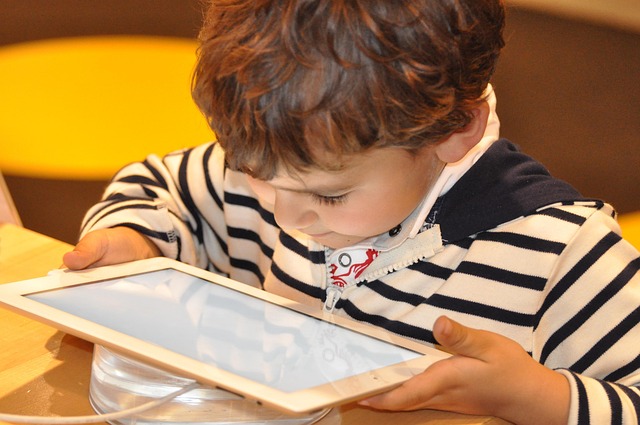# AI Technology and the Future of Work: Revolutionizing Collaboration and Enhancing Workforce Dynamics
The advent of artificial intelligence (AI) has transformed various sectors, and its impact on the workplace is particularly profound. As organizations increasingly adopt AI technologies, the dynamics of collaboration and workforce engagement are undergoing significant changes. This article delves into how AI is revolutionizing collaboration, enhancing workforce dynamics, and shaping the future of work.
## The Evolution of Collaboration Through AI
AI technology is redefining how teams collaborate, breaking down traditional silos and fostering more integrated approaches to problem-solving. By leveraging AI-driven tools, organizations can streamline communication and enhance project management. For instance, platforms equipped with AI capabilities can analyze team interactions, identify bottlenecks in workflows, and suggest optimal strategies for collaboration. This not only increases efficiency but also empowers teams to focus on more strategic tasks rather than getting bogged down by administrative duties.
Moreover, the integration of AI in collaborative tools allows for real-time data sharing and insights. Teams can access relevant information instantly, facilitating informed decision-making. By harnessing natural language processing (NLP) and machine learning algorithms, AI systems can summarize discussions, extract key points from meetings, and even predict project outcomes based on historical data. Consequently, organizations are witnessing a shift towards more data-driven collaboration, where insights derived from AI enhance the quality of interactions among team members.
Furthermore, AI is enabling remote collaboration in unprecedented ways. The COVID-19 pandemic accelerated the trend of remote work, and AI technologies have played a crucial role in maintaining productivity in this new landscape. Virtual assistants powered by AI can schedule meetings, manage calendars, and even assist with tasks like document drafting. As a result, remote teams can operate seamlessly, regardless of geographical barriers, fostering a culture of collaboration that transcends traditional office settings.
## Enhancing Workforce Dynamics with AI
Transforming workforce dynamics is another critical aspect of AI’s influence on the future of work. With AI systems capable of analyzing employee performance and engagement levels, organizations can tailor their approaches to workforce management more effectively. By leveraging predictive analytics, companies can identify trends in employee behavior, such as potential burnout or disengagement, and implement proactive measures to address these issues. This not only enhances employee satisfaction but also boosts retention rates.
In addition, AI technology can facilitate personalized learning and development opportunities for employees. Through adaptive learning platforms, organizations can deliver customized training programs that cater to individual skill levels and career aspirations. By analyzing data on employee performance and preferences, AI can recommend courses or resources that align with each worker’s unique needs. This personalized approach not only enhances employee engagement but also cultivates a culture of continuous learning, which is essential for staying competitive in a rapidly evolving job market.
Another significant benefit of AI is its potential to reduce bias in hiring and promotion processes. Traditional recruitment methods often rely on subjective judgments that can inadvertently perpetuate biases. However, AI-driven recruitment tools can analyze candidate profiles based on objective data, ensuring that hiring decisions are made based on merit rather than unconscious biases. This shift towards data-driven recruitment practices not only promotes diversity within organizations but also enhances overall workforce dynamics by fostering a more inclusive environment.
## The Future of Work: A Collaborative Ecosystem
Looking ahead, the future of work is poised to be characterized by a collaborative ecosystem where AI and human workers coexist harmoniously. Rather than replacing jobs, AI is expected to augment human capabilities, allowing employees to focus on higher-level tasks that require creativity, critical thinking, and emotional intelligence. This synergy between human intelligence and AI technology is set to redefine the workplace landscape, creating opportunities for innovation and growth.
As organizations embrace this collaborative ecosystem, the role of leaders will also evolve. Leaders will need to cultivate a culture that encourages experimentation and adaptability, empowering employees to leverage AI tools effectively. Training programs focused on digital literacy and AI competency will become essential, ensuring that workers are equipped to thrive in an AI-driven environment. By fostering a culture of collaboration and continuous learning, organizations can harness the full potential of AI while also promoting employee empowerment.
In addition, ethical considerations surrounding AI implementation will play a crucial role in shaping the future of work. Organizations must prioritize transparency and accountability in their use of AI technologies, ensuring that employees feel comfortable and secure in their roles. By establishing clear guidelines and ethical frameworks for AI deployment, companies can build trust among their workforce and mitigate concerns related to job displacement or surveillance.
In conclusion, AI technology is revolutionizing collaboration and enhancing workforce dynamics in ways that were previously unimaginable. From streamlining communication and fostering personalized employee development to creating a more inclusive hiring process, the benefits of AI are manifold. As we move towards a future characterized by a collaborative ecosystem, organizations must embrace the opportunities presented by AI while also addressing the ethical implications of its use. By doing so, they can create a workplace that not only thrives on innovation but also values the contributions of every individual. The future of work is indeed bright, with AI as a key driver of transformation.











